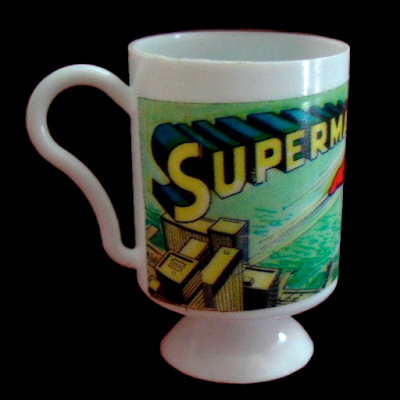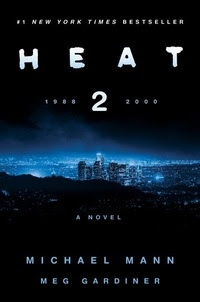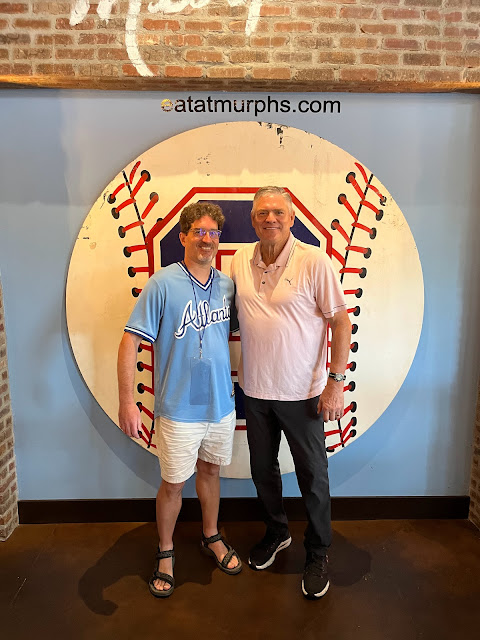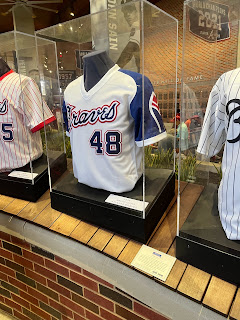I was born in 1972. I grew up in Calais, Maine, a small town of roughly 4,000 right on the Canadian border—it was maybe a 10 minute walk from my front porch to the bridge that crossed the St. Croix River into St. Stephen, New Brunswick. The 80s was my decade: MTV, the rise of video games and arcades, Harrison Ford as Han Solo, Indiana Jones, Rick Deckard, et al., Stephen King books and movies (being from Maine meant one was contractually obligated to be a fan), Atari 2600, personal computers, and the slow, snaking influx of cable television, with WTBS at the forefront, at least for those of us in Calais. And with WTBS, that meant we could watch every Atlanta Braves baseball game, even if they weren’t the best team in the majors.
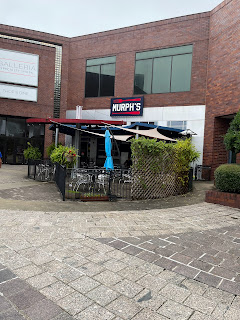

Of course, growing up in Maine meant I was, and still am, a Boston Red Sox fan. I can remember listening to Sox games on the radio. If we were lucky, the Sox might be featured on the game of the week, Saturday, but with a couple dozen other teams available, chances were slim. So, although I was a diehard Sox fan at the time, it was challenging to be able to watch the team play, and with the Braves always on TBS, they quickly became my second favorite team. It was just a joy to see baseball on the small screen, no matter who was playing, but when you can watch the same team night in and night out, you become familiar with the players and an affinity for the team grows.
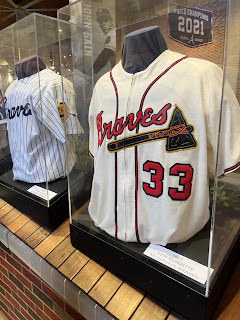

Baseball was my favorite sport, period. I watched the Baseball Bunch to gain pointers—on TBS, natch—and made sure to be in front of the TV when Skip Caray and Pete Van Wieren began the pre-game for the Braves. And during that time, Dale Murphy was the star of the team. He’d had trouble finding a position to play: overthrowing second base as a catcher, committing the most errors of any first baseman the season he played that position. When they finally put Murphy in the outfield, everything finally clicked, and he became a superstar.


Murphy was tall and lean, but still very strong. In the outfield, he had a cannon for an arm. Runners were on notice to beware trying to take that extra base, Murphy might throw them out. He could hit home runs to every part of the stadium, collectively hitting the most home runs and driving in the most runs from 1981-1990. Murphy could also run, stealing bases as well as hitting dingers, and he became an early member of the 30-30 club, for players who hit 30 home runs and steal 30 bases in the same season. Dale Murphy was an exciting player to watch, one who could change the complexion of a game with a single swing of his bat. And, of course, he became my baseball hero. I modeled my swing on his, in little league. I had a framed souvenir celebrating his MVP years. And, to this day, Murphy is my favorite player all-time.

But Murphy was more than just a great baseball player, he was a great person. With his back-to-back MVP seasons in 1982 and 1983, the attention that all of us TBS kids had given him became a national phenomenon, as Murphy was profiled in Sports Illustrated, as well as other sporting magazines of the era. In those stories, we fans learned of his devout nature. That Murphy, a Mormon, did not drink alcohol, did not curse, and seemed to be a genuinely good person. When he became a member of the Phillies, a team with some notorious rabble-rousers, Murphy, the elder statesman, would take his teammates out to dinner and pay for the meal, but he would not pay for their alcohol. One time, Murphy came out of the dugout to ask a fan who had been cursing throughout the game to refrain from using that type of language. Murphy also—like all our favorite heroes—had the luck, or the ability, to elevate his game play to mythical proportions. Before one game, a young fan who was disabled got a chance to meet Murphy and asked him if he could hit a home run for them. Murphy felt uncomfortable but didn't want to disappoint this child and said he would try. That day, Murphy hit two home runs.


But, growing up in rural Maine, the idea of going to an Atlanta Braves game was just not in the cards. Fenway Park wasn’t even something to be considered. Years passed, Murphy retired, I had many birthdays, got married and had a family, and the idea of ever meeting my childhood hero wasn’t even a blip on my metaphorical radar.
Until it was…
I still google Dale Murphy, on occasion, either reading newer stories featuring him or re-reading his stats and highlights, and at some point in late 2020 or early 2021 I came across a blog post from a fellow Murphy fan who had attended the Dale Murphy MVP Experience. What!??! As stated, it was a whole experience, with the opportunity to have photos taken with Murph, get items signed by him, and attend a Braves baseball game, in the company of roughly 40 other Murphy fans, for what, to me, seems a reasonable cost. With the pandemic still raging, I was not considering it for 2021, but as 2022 rolled around, along with my 50th birthday, it seemed the right time to do this.


I signed up for the August 21 Braves game against the Houston Astros. An afternoon game, on a Sunday, this seemed perfect for a 50-year-old who doesn’t care to stay up much past 9:30 anymore, even when I'm reading a good book. We had airline points to take care of the flight. My cousin and his family live in Atlanta and offered the use of their spare bedroom before I had a chance to ask. It would be great to catch up with them, while also getting the opportunity to meet and spend the day with my childhood hero. Everything fell into place nicely.
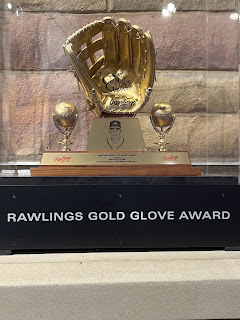

With a 1:35 first pitch for the game, the MVP Experience started at 9:00 am, in a room next to Murph’s Restaurant at the Cobb Galleria Conference Center. The morning started with introductions around the room. Many of those attending were with friends and had driven into Atlanta from nearby Alabama or the Carolinas or elsewhere in Georgia. There was a gentleman who flew in from Oregon, and I flew down from Maine, the longest treks for that group. Then we moved on to a slideshow from Murphy’s childhood and life as a major league ballplayer. He shared stories, told some jokes at his own expense, and was generally forthcoming and gregarious.
One story Murphy shared took place in 1989. At the time, Murphy was having trouble at the plate and not hitting well. Mike Schmidt, who was still playing at the start of the ’89 season, went into his backyard with a video camera and made a hitting video, with tips for Murphy, and sent that off to him. I love that story so much.
Next, the whole room played Braves trivia through an app, competing against one another for bragging rights, and a signed Dale Murphy baseball. There were 30 questions, and though I did relatively well I was not close to the top of the pyramid, as the winner had 27 questions correct. Impressive.
It’s at this point I feel I should point out that this was actually a family affair for Murphy. His wife is greatly involved with the MVP experience, responding to emails through the website and keeping Murphy on track during the actual day. One of Murphy’s sons, along with his younger children, was also on-hand to assist, while another one of his sons had flown in to help with the experience that went on the night before. It was nice, and it also allowed Murphy not to be swarmed when we entered Truist Park for the game, but that comes later.


After trivia, it was time to do autographs. Part of the experience includes the chance to get two personal items signed by Murphy. He does all the autographs prior to the game, the thinking being that doing it during the ballgame would take his attention away from talking and interacting with those of us who have paid to be there with him. It’s very considerate on the part of Dale and his wife, which is something I noticed throughout the day. As for what I got signed by Murphy: I brought a copy of the Sports Illustrated that featured him in 1983, along with a baseball card I had owned that my sister inherited and which she returned to me when I told my family I was going to participate in this experience. All of those attending also received an exclusive, limited art print, which I also got signed.


After this, it was closing in on 11:00 and we all moved next door, to Murph’s Restaurant, for lunch. All of those attending the MVP Experience sat in one section of the restaurant, with Murphy as emcee. We ordered from a limited menu – I got the chicken fingers and fries, which were amazing, and I can heartily recommend the cheese curds that were available at every table – and we also got the opportunity to have a picture taken with Murphy in front of the #3 that used to hang in Turner Field with the other retired ballplayers’ jersey numbers. Fabulous time, sitting and commiserating with fellow Murphy fans – a number of whom were also celebrating their 50th birthdays, as I was, with this gift to themselves – eating good food, listening to more fantastic stories from Murphy, and just enjoying the morning. Once everyone was done with the food, it was time to walk over to Truist Park, for the game against the Astros. But first…
Brief Interjection:
One of the more interesting anecdotes Murphy shared, during lunch, was the fact that when he won his second National League MVP award, he became only the ninth player in history to win back-to-back MVP awards. The most fascinating aspect of that story was the fact that, for those nine players who’d won back-to-back MVPs, there was one player for each position on the field.
Pitcher – Hal Newhouser
Catcher – Yogi Berra
First Base – Jimmie Foxx
Second Base – Joe Morgan
Shortstop – Ernie Banks
Third Base – Mike Schmidt
Outfield – Mickey Mantle
Outfield – Roger Maris
Outfield – Dale Murphy
The conference center where Murph’s Restaurant is lies on the opposite side of Interstate 285 from Truist Park, where the Atlanta Braves play their games. An elevated walking bridge allowed us to easily make our way over to the ballpark after lunch. Along the way, it was surprising that Murphy did not get recognized more often, though that could be attributed to him being in the middle of a cluster of nearly four dozen people, even though Murphy, at 6’4”, towered over all of us and was easily visible. Only one time, while we were stopped in the parking area for Murphy to explain how things would go once we entered the ballpark, did a fan yell out “Murph!” from behind our group.


During that pitstop, Murphy explained that he would not be walking through the ballpark with us, since he would undoubtedly be recognized there, and he did not wish to be distracted from us during the day. His wife and son would walk us into the ballpark and take us to the Braves’ Monument Garden, which has a statue of Henry Aaron, examples of the Braves uniforms through the years, including before they were named the Braves, videos of Aaron and Murphy, along with other memorabilia. At this point, Murphy took the opportunity to speak on Aaron, whom Murphy feels is the best player of all-time in the sport. As Murphy pointed out, most people think first of the home runs – 755 – and rarely look past that astronomical number. But Aaron was an all-around player and ranks third all-time in hits (3,771), fourth in runs scored (2,174), first in total bases (6,856), first in extra-base hits (1,477), first in RBIs (2,297), and fourth in intentional walks (293). He is one of six players to have 3,000 hits and 500 home runs and would have reached 3,000 hits had he never hit a home run. His lifetime average is .305. And consider that he reached the plateau of 755 home runs without ever hitting more than 47 in a single season.


But that, to Murphy and any fan of Aaron’s, isn’t what makes him the greatest player to ever play baseball. It is the fact that Aaron entered the league shortly after Jackie Robinson broke the color barrier. He dealt with the racism and hatred that so many other black ballplayers of his and other eras did, and he still managed to perform at a high level on the ballfield. And then Aaron had the audacity to chase after the great white hero of the sport, Babe Ruth. As Aaron hit home runs and closed in on Ruth’s record of 714, the ugliness and ignorance and hatred of racists all across the country spewed forth in letters and threats and vitriol that Henry Aaron should never have been subjected to. Aaron said that year of chasing 715 home runs was the worst of his entire life. I cannot imagine the emotional toll he was under, from all of those hateful letters and hateful observers in the stands and in the streets (I cannot call them fans). And yet, Aaron conducted himself with grace and honor and continued to hit home runs until he passed Ruth. If that isn’t bravery, I don’t know what is.


Truist Park, where the Atlanta Braves play, is a beautiful ballpark. Inside the main entrance, they have monument park, with displays of classic uniforms, awards the team’s players have won through the years, display bats and gloves for notable hitters and pitchers throughout the history of the organization – all of this going back through the Braves time in Milwaukee and Boston – as well as a bronze statue of Henry Aaron, situated directly in line with home plate on the actual ball field, and a display of 755 of the same type of bat Aaron utilized during his playing days, which form the number 755, the total number of home runs the home run king hit in his career. It’s an impressive display and a wonderful walk through Braves baseball history. There was also a world series trophy on display, which was great to see in person.


The sun was bright, the grass green, and the sky a deep blue, as Dale Murphy’s wife and son led us through the concourse to the Home Depot Clubhouse, which sits above left-center field. A balcony area with bench seating and an enclosed dining area with a private bathroom make up the clubhouse, where food and drink were also provided: salad and sandwich fixings, brownies and cookies, soda and water, and it was all fantastic! In the clubhouse there were also a couple of TVs, where you could watch the televised game, if you wished. But it was sunny, so who wouldn’t want to sit out on the benches overlooking the field? Plus, we got to put up the Ks for every strikeout the home team pitchers threw that day (thankfully, people allowed the children who were attending with their parents to do the honors; that was a nice gesture).


The game was fantastic (it’s live baseball, Major League Baseball(!), of course it was fantastic). Both starters, Charlie Morton and Jose Urquidy, pitched well, Matt Olson started the game off with a 2-run homer, the Astros came back to go ahead by three heading to the bottom of the ninth, where the Braves mounted a comeback but fell one run short, 5-4. Exciting! And having the chance to watch it from the Home Depot clubhouse, with the comfort of plenty of seating, snacks, and a private loo, was phenomenal. And Dale Murphy was a gracious, and great, host. He talked baseball, took questions, and had a trivia contest with the entire group, leading up to the start of the game, and then, throughout the next eight-plus innings (he and his wife left early so as not to get swamped by other fans and take away from our experience with him), Murphy made sure to go around and speak with every single person there, either individually or, more often than not, in small groups. Unsurprisingly, Murphy’s favorite topic was baseball. He discussed his plans to hopefully become a partner in one of the discussed expansion teams that may be coming in the next few years, noting that he and a group are pushing for one of those teams to be in Portland, Oregon. He discussed how new stadiums, for expansion teams as well as upgrades for traditional teams, should have less seating and make the day at the ballpark more of an experience with amenities and such at the ballpark – similar, I would say, to the children’s section that was just below where we sat, which included various games and skills areas, as well as a pro shop dedicated for children, with only kids’ sizes available. He talked about how baseball is missing out on great talent in communities of color, due in no small part to the fact that when people of color from economically depressed areas are looking to college, they find a dearth of scholarships available for playing baseball, while there are a wealth of scholarships for football, and even if a future as a baseball player, which does not take such a toll on one’s body as football does, would make more sense, they are often forced to take the football scholarship, because they need that money to pay for college and pursue their dream of playing college sports and possibly finding a way out of their economic situation as a professional athlete. He talked about how there needs to be more outreach to these communities, not only for players but for umpires as well, and that there needs to be a better way for umpiring to be a viable road for those who are working in the minors, since the number of MLB umpires who retire annually is typically one or none. He talked about how the pay for minor league players needs to be increased, that adjusted for inflation the base pay for minor league players is less than what it was when he played in the minors in the 70s, and how he was really only able to take the chance on developing in the minors because of a signing bonus he received. Murphy held forth on a number of topics surrounding this sport we all love, many of us because of the high level of play Murphy brought to the game during our formative years.

Murphy proved himself to be thoughtful and engaged with the realities of baseball today, sharing ideas that, to my mind, make incredible sense. And the fact that he consciously made an effort to have a discussion with everyone who paid to join him that day only increased my esteem for him. They say (the ubiquitous ‘they’) that you should never meet your heroes, but in this case, it certainly worked out for me. Dale Murphy was a fantastic ballplayer also lauded for his wholesomeness, and after having spent a day with him and 40 of his more rabid fans, I feel I can say that his reputation was well-deserved. This was certainly a day I will never forget.
-chris

